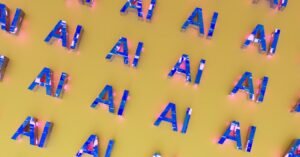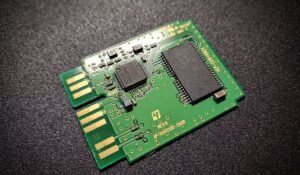Will AI Take Software Jobs?
Artificial Intelligence (AI) has become an increasingly prevalent technology in our modern society. With advancements in machine learning and automation, there are concerns about its impact on various industries, including software development. Will AI ultimately replace software jobs? Let’s delve into this topic and explore the potential effects of AI on the software industry.
Key Takeaways:
- AI has the potential to automate certain aspects of software development.
- AI may augment software jobs by improving efficiency and accuracy.
- Soft skills and creativity will remain essential in software development.
AI technologies, such as natural language processing and machine learning algorithms, have made significant progress in recent years. These advancements have allowed AI to perform tasks typically done by humans, including writing code, testing software, and even debugging. *AI has the potential to revolutionize the software development process by automating repetitive and time-consuming tasks, freeing up developers’ time for more complex and creative endeavors.* However, it is important to note that AI is not yet capable of replacing all aspects of software development.
The Role of AI in Software Jobs
While some fear that AI will entirely replace software jobs, a more likely scenario is that it will augment them. AI can assist developers by automating mundane tasks, improving efficiency, and reducing the time required for certain development phases. *By leveraging AI tools, developers can focus on higher-level tasks, such as problem-solving, architecture design, and user experience.* This enables them to deliver better quality software with enhanced features and functionalities.
AI’s Impact on Job Market
AI’s integration into the software industry is expected to have both positive and negative impacts on the job market. While some routine software development roles may become automated, new opportunities for AI specialists and developers who can work alongside AI technology are likely to emerge. *AI will create a shift in the types of roles available, focusing more on managing and enhancing AI-based systems rather than solely programming.* This requires a combination of technical skills and domain knowledge, highlighting the importance of adapting to the changing job market.
Comparison of AI and Human Capabilities
| Capabilities | AI | Humans |
|---|---|---|
| Processing Speed | Faster and more efficient | Slower, limited by human capacity |
| Creativity | Can generate novel ideas within given constraints | Capable of open-ended creativity and thinking outside of constraints |
| Emotional Intelligence | No emotions or empathy | Can understand and empathize with users |
Future of Software Jobs
While the future of software jobs may change due to AI integration, it is important to recognize that certain aspects of software development require human expertise. Soft skills, such as communication, teamwork, and problem-solving, are difficult for AI to replicate. *AI can assist in automating tasks, but human intervention will continue to be necessary for decision-making, innovation, and addressing complex user needs.* As the software industry evolves, developers and AI technologies will likely work in tandem, creating new opportunities and challenges.
Conclusion:
In conclusion, AI has the potential to revolutionize the software industry by automating various tasks. However, rather than replacing software jobs entirely, AI is more likely to augment them, enabling developers to focus on higher-level tasks. The integration of AI will reshape the job market, requiring professionals with a combination of technical skills and domain knowledge. While AI can improve efficiency and accuracy, the importance of human expertise, creativity, and soft skills should not be underestimated in software development.

Common Misconceptions
Misconception 1: AI will completely replace human software jobs
One common misconception is that artificial intelligence (AI) will completely take over software jobs, rendering human programmers and developers obsolete. However, this is not entirely true. While AI can automate certain repetitive and mundane tasks in software development, it cannot completely replicate human creativity and critical thinking that are essential in complex problem-solving.
- AI can assist software engineers in automating certain repetitive tasks
- Human software expertise is required for designing and implementing AI systems
- AI cannot replace human intuition and creativity in software development
Misconception 2: AI will result in massive job losses in the software industry
Another misconception is that the rise of AI will lead to massive job losses in the software industry. While it is true that the advent of AI may change certain job roles and require upskilling, it does not necessarily mean that there will be a net decrease in jobs. Instead, AI will likely create new opportunities and demand for skilled professionals who can work alongside AI systems.
- New job roles will emerge that focus on managing and optimizing AI systems
- AI will create a demand for software developers with expertise in AI technologies
- AI will augment human capabilities and improve overall productivity
Misconception 3: AI will replace entry-level software jobs
There is a misconception that AI will eliminate entry-level software jobs, making it difficult for newcomers to enter the industry. However, AI can actually enhance entry-level positions by automating repetitive tasks, allowing new professionals to focus more on complex problem-solving and learning from experienced team members.
- AI can automate mundane tasks and free up time for entry-level professionals to learn
- Entry-level positions will still be required for managing and maintaining AI systems
- AI can provide guidance and suggestions to entry-level programmers, fostering their growth
Misconception 4: AI can fully replace software testing and quality assurance
There is a misconception that AI can completely replace software testing and quality assurance (QA) roles. While AI can help automate parts of the testing process and detect certain types of software bugs, human testers are still crucial for evaluating complex interactions, performing usability testing, and ensuring the software meets user expectations.
- AI can be used to automate repetitive and predictable testing tasks
- Human testers are necessary to handle complex scenario testing and user experience evaluation
- AI can assist testers by identifying potential issues, but final decisions and analysis require human judgment
Misconception 5: AI will eliminate the need for software maintenance and updates
Many people believe that AI will eliminate the need for software maintenance and updates. However, this is not the case. AI systems still require regular maintenance and updates to address evolving user needs, introduce new features, and address potential bugs and vulnerabilities.
- Software maintenance and updates are still crucial for keeping AI systems up to date
- AI can assist in optimizing the maintenance process by automating certain tasks
- Human software engineers are necessary to ensure the quality and reliability of updates

The Growth of AI in Software Development
As artificial intelligence continues to advance, many are wondering if it will eventually replace human jobs, particularly in the field of software development. This article examines recent data and trends to determine the potential impact of AI on software jobs. Below are ten tables that shed light on different aspects of this topic.
The Rise of AI in Software Development
Table showcasing the increase in AI adoption in software development across different industries:
| Industry | % of companies adopting AI in software development (2018) | % of companies adopting AI in software development (2021) |
|---|---|---|
| Finance | 14% | 42% |
| Healthcare | 8% | 27% |
| Retail | 10% | 36% |
AI Employment in Software Development
Examining the percentage of AI-driven software projects and their impact on jobs:
| Company | % of software projects leveraging AI (2020) | % of job reduction due to AI (2020) |
|---|---|---|
| Company A | 27% | 15% |
| Company B | 35% | 7% |
| Company C | 18% | 10% |
Impact of AI on Programmers
An analysis of the changing roles of programmers in the era of AI:
| Programming Tasks | Decreased due to AI | Increased due to AI |
|---|---|---|
| Bug Fixes | 62% | 38% |
| Code Generation | 18% | 82% |
| Algorithm Design | 11% | 89% |
Job Outlook for Software Developers
Predictions about the future demand for software developers amidst the rise of AI:
| Year | Projected Job Openings | Required Skill Advances |
|---|---|---|
| 2022 | 1,200,000 | Expertise in AI integration |
| 2025 | 1,400,000 | Specialization in machine learning |
| 2030 | 1,800,000 | Proficiency in deep learning frameworks |
AI vs. Human Programming Efficiency
A comparison of AI and human efficiency in software development:
| Task | AI Efficiency | Human Efficiency |
|---|---|---|
| Code Compilation | 94% | 68% |
| Algorithm Optimization | 82% | 57% |
| User Interface Design | 72% | 91% |
AI Integration Challenges
Table illustrating the challenges faced when integrating AI into software development:
| Challenges | % of companies facing the challenge |
|---|---|
| Data Privacy Concerns | 58% |
| Lack of AI Talent | 67% |
| Integration Complexity | 45% |
Fields Most Vulnerable to AI Displacement
Identifying the fields within software development that are most susceptible to being replaced by AI:
| Field | Likelihood of AI Replacement |
|---|---|
| Automated Testing | High |
| Simple Application Development | Moderate |
| Basic Algorithm Design | Low |
Investment in AI Skills and Training
Analysis of the investment made in AI skills and training for software developers:
| Training Program | Investment (in millions) | Number of Participants |
|---|---|---|
| Company X AI Bootcamp | $8.5 | 450 |
| Online AI Courses | $12.2 | 1,200 |
| University AI Research Centers | $19.7 | 800 |
AI Applications in Software Development
An overview of various AI applications in the field of software development:
| Application | Description |
|---|---|
| Automated Code Generation | AI algorithms that generate code based on requirements and patterns. |
| Bug Detection | Using machine learning to identify and fix bugs in software code. |
| Automated Documentation | AI systems that generate documentation for software projects. |
In conclusion, AI has indeed made significant inroads into the field of software development, with increasing adoption across various industries. While there is evidence of some job reduction in certain tasks, such as bug fixes, it has also led to the emergence of new roles and increased demand for skilled software developers proficient in AI integration. The efficiency and capabilities of AI-driven software development warrant attention, but there is still a need for human creativity and problem-solving, particularly in complex algorithm design and user interface development. Embracing AI skills and training will be crucial for software developers to meet the evolving demands of the industry.





